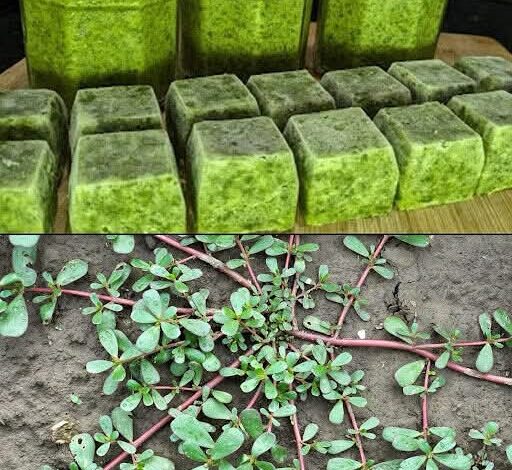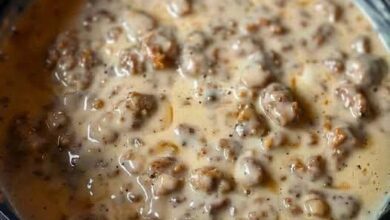All Recipes
What Happens to Your Body When You Eat Purslane Every Day — Especially After 60

What Happens to Your Body When You Eat Purslane Every Day — Especially After 60
Introduction
Purslane, often overlooked as a simple garden weed, is a nutritional powerhouse. Rich in omega-3 fatty acids, antioxidants, vitamins, and minerals, it has been celebrated in traditional medicine for centuries. Consuming purslane daily can provide a variety of health benefits, especially for individuals over 60, when nutrient absorption and heart health become increasingly important.
Ingredients / What You Need
- 1–2 cups of fresh purslane leaves and stems
- Olive oil or your preferred cooking oil
- Lemon juice (optional)
- Salt and pepper to taste
- Garlic or other herbs (optional)
Instructions / How to Eat Purslane Daily
- Raw in Salads: Wash purslane thoroughly and add it to salads for a fresh, slightly tangy flavor.
- Sautéed: Heat a pan with a little olive oil, add chopped purslane, and cook for 3–5 minutes until tender. Season with salt, pepper, and garlic.
- Smoothies: Blend purslane with fruits and vegetables for a nutrient-rich green smoothie.
- Soups and Stews: Add purslane in the last 5 minutes of cooking to preserve its nutrients.
Description / Health Benefits
- Boost Heart Health: Omega-3 fatty acids help reduce inflammation and support cardiovascular function.
- Enhance Bone Health: High in magnesium, calcium, and potassium, which are essential for bone strength, particularly after 60.
- Improve Digestion: Fiber content promotes healthy digestion and regular bowel movements.
- Support Skin and Eye Health: Rich in vitamins A, C, and E, as well as antioxidants, purslane helps protect against oxidative stress and aging.
- Stabilize Blood Sugar: Some studies suggest purslane may help regulate blood sugar levels.
Tips
- Fresh is Best: Always choose fresh, bright-green purslane over wilted leaves for maximum nutrients.
- Moderation: Start with small amounts if you are not used to high-fiber greens to avoid digestive discomfort.
- Combine with Other Foods: Pair purslane with healthy fats like olive oil or avocado to improve absorption of fat-soluble vitamins.
- Preserve Nutrients: Lightly sauté or eat raw; overcooking can reduce its nutritional value.
Correction / Things to Watch
- Avoid purslane from areas treated with pesticides or herbicides.
- People with kidney issues should monitor intake due to its oxalate content.
- If you’re on blood-thinning medication, consult a doctor since purslane is high in vitamin K.
Enjoy
Incorporate purslane into your daily meals as a salad green, a cooked side, or blended into smoothies. Over time, you may notice improvements in energy, heart health, and digestion — especially after 60 when nutrition becomes key to maintaining vitality.



